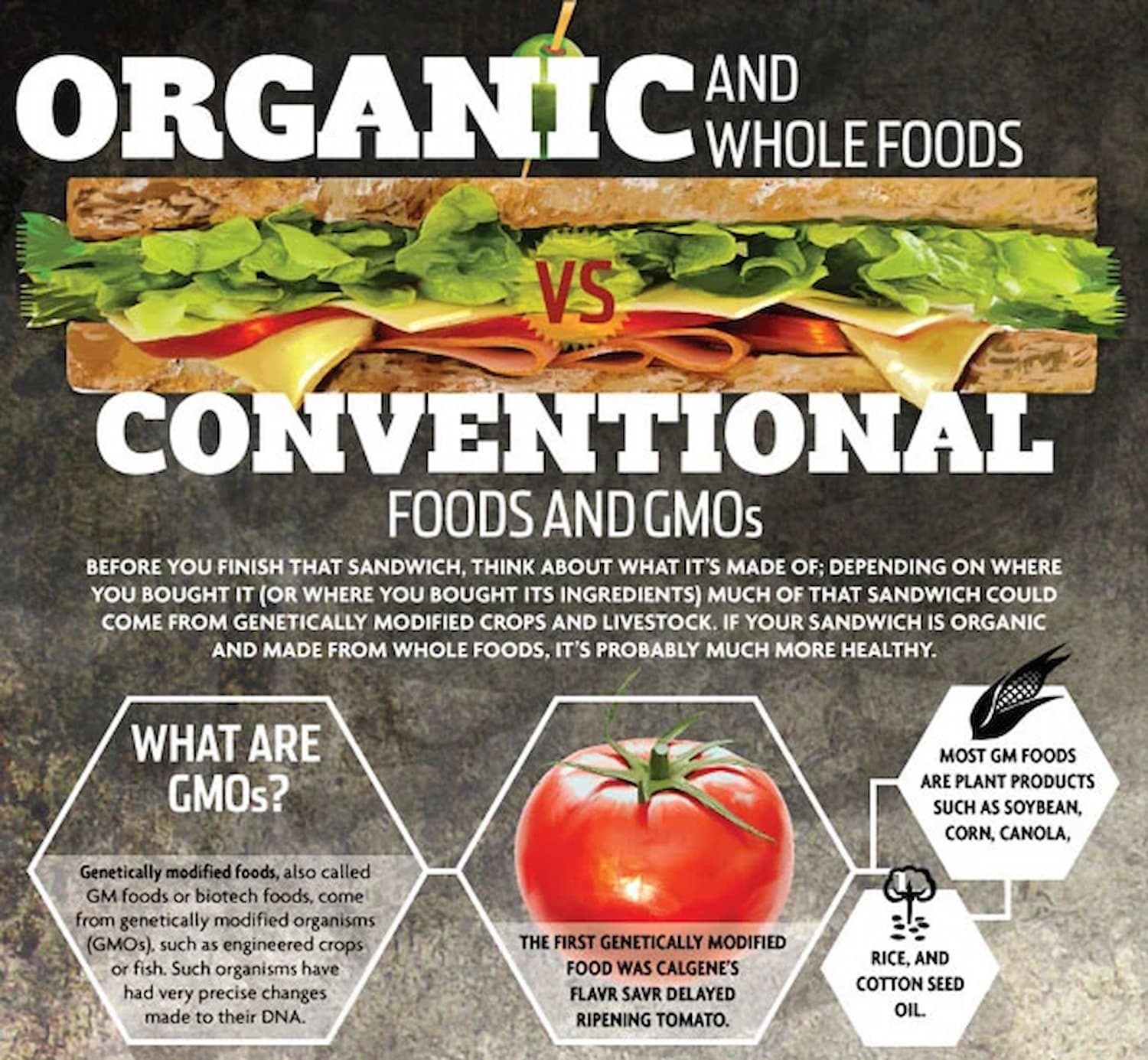
Can you tell whether regular food prepared in an appetising manner is made from organic food products or is the result of conventional farming methods? It's tough unless the plate has all of the ingredients listed on it. Having said that, how does one know the health effects of organic products versus conventional fruit, vegetable and meat? Which offers higher nutrient levels?
The battle between organic crops and conventional produce continues, and you're left wondering which has more nutritional content and is worth including in your daily diet. No need to eeny, meeny, miny moe as this guide takes you through the features and benefits of organic and conventional foods, their differences, and which has strong evidence of being more beneficial.
What is Conventional Food?
Conventional foods are produced with a diverse mix of artificial chemicals, fertilisers, pesticides, herbicides, antibiotics and any other man-made additives or organisms.
Conventionally produced meat, dairy and poultry products may be derived from animals fed with antibiotics, hormones or other medications that prevent disease and stimulate growth. Genetic engineering is also a common approach used in conventional farms, which aims to reduce reliance on synthetic pesticides.
What is Organic Food?
Organic foods are produced without the use of artificial chemicals, fertilisers, chemical pesticides, herbicides, or any other man-made additives or organisms that may be used to encourage plant growth and manage weeds and pests.
Organic meats, dairy and poultry items are produced without the use of antibiotics, growth hormones and other medications that may stimulate their growth and prevent the breakout of disease.
What are the Recognisable Differences Between the Two?
As stated above, the differences between organic and conventional foods lie between their modes of production. However, despite most organic foods being declared 'pesticide free', there is no guarantee they are, as the term is not yet regulated in Australia. This means that some foods labelled 'organic' in Australia may in fact carry small traces of pesticide residues, but these levels are much lower than those found in conventional food products.
Differences in the Way Animals are Managed
The way in which animals (from which meat, dairy and eggs are sourced) are managed is also a key difference between organic and conventional foods. Organic agricultural products are fed a chemical-free, balanced diet and managed with rotational grazing to prevent the risk of disease, whereas conventionally produced animal products are fed with artificial feeds with synthetic vitamin content and medicines to prevent an outbreak of disease.
Differences in Production Standards
Whilst there is no regulating body in Australia to ensure it, organic foods are generally produced, handled and processed with more stringent standards when compared to the standards followed in the production of conventional foods. This is the reason why most, if not all, organic products retain their nutrient content intact, whereas conventional foods lose 20% to 30% of their nutritional quality due to the high levels of pesticides and other chemicals employed in their growth.
Differences in Health Benefits
Organic food is considered safer for human health as they carry lower levels or the complete absence of chemicals that may damage one's health. The extensive processing of conventional foods also reduces their nutritional value and consequent number of benefits to one's health. Plants and animals that are organically grown are more nutrient dense, having more antioxidant content, a more impressive fatty acid profile, and higher levels of conjugated linoleic acid to prevent metabolic syndrome and cancer risk, which are often attributed to their conventional alternatives due to the synthetic chemicals and genetic modification involved in their manufacture. Several observational studies have shown scientific evidence of a direct link between eating genetically modified foods and a variety of health issues.
Source: friendsEat
Differences in Availability
Organic fruits and vegetables are only available when your fruit or vegetable of choice is in season, thus limiting your choices in terms of variety throughout the year. All conventionally produced fruit and vegetables are generally available all year round. Organic farmers are trying to increase organic food production by working on the amount of produce grown in their greenhouses so there will be more year-round availability.
Differences in Price
There is no arguing that organic produce is more expensive than conventionally non-organic foods. This is because the former comes from smaller farms and are more labour-intensive in production, which forces retailers to put up their prices. To make it more accessible to people who want to shift to an organic diet but cannot afford it, some companies are offering their own brands of organic milk, meat and vegetables at lower prices. The benefits of eating conventional foods include lower prices since they can be mass produced and grown easily.
Differences in Shelf Life
Organic foods have a shorter shelf life when compared to conventional foods, as they contain no chemical food preservatives as conventional foods do.
Differences in Taste
Taste differences between conventional and organic foods are a hard one to judge with taste being such a personal, subjective measurement. However, many people who have long shifted to organic food products claim that it tastes better as they are free of any chemicals that may affect the taste buds.
Differences in Where You Can Buy Both Foods
Whilst conventional foods may be purchased at any supermarket or corner shop, organic foods are harder to source. Many mainstream retailers are increasingly opening organic food sections, but most to date have not. Organic foods may be found and purchased from your local health food shop, organic fruit and vegetable store or farmer's markets.
Organic food consumption has a better chance of reducing the risk of serious diseases like cancer than conventional products. Eating naturally creates an inner balance in your body, allowing your immune system to fight off bacteria and germs naturally without getting sick often or at all. However, you don't have to go organic overnight. Instead, buy some conventional products in the grocery store and then purchase some organic products. It would be ideal to purchase directly from a farmer who can give you more insight into their organic farming practices. They can provide you with invaluable information that you cannot get at a grocery store.
Originally published on Apr 08, 2010









